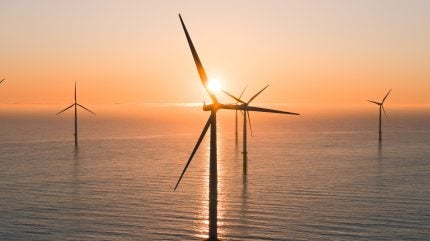
In the five years leading up to the end of 2023, the UK’s offshore oil and gas industry had already reached its 2027 target for cutting emissions, according to lobby group Offshore Energies UK (OEUK).
This four-year improvement was achieved by making power systems more efficient and reducing gas flaring and venting, said the organisation.

Discover B2B Marketing That Performs
Combine business intelligence and editorial excellence to reach engaged professionals across 36 leading media platforms.
Companies in the industry had reduced their pollution by more than 25% by the end of 2023, after previously making the 2027 pledge in the North Sea Transition Deal, published by the UK Government in 2021.
The lobby group said in a statement on Tuesday that the UK oil and gas industry has more than halved methane emissions since 2018 and reduced overall emissions associated with the production of oil and gas by 28% in the same time frame.
This means the UK will achieve targets agreed with government for methane reduction seven years ahead of the 2030 deadline.
Methane emissions have fallen by more than 50% since the 2018 baseline and there has been a substantial decrease in overall greenhouse gas emissions from oil and gas platforms, which have also fallen by more than the target of 25% since 2018.

US Tariffs are shifting - will you react or anticipate?
Don’t let policy changes catch you off guard. Stay proactive with real-time data and expert analysis.
By GlobalDataThe body said that its analysis shows that “nearly 70% of the reductions have been achieved through operator improvements such as modifying power systems used to extract oil and gas from reservoirs deep under the seabed, or introducing new systems to capture unused gas under pressure that was previously burned off for safety reasons”.
Assessments by OEUK show the North Sea still has the potential to unlock the equivalent of more than 13 billion barrels of domestic oil and gas.
It added that “securing a continuing supply of homegrown energy will also sustain the energy supply chain, which is vital to bringing wind or hydrogen energy ashore as the UK transitions to a greater reliance on clean renewable energy”.
Mark Wilson, HSE & operations director at OEUK, said in the statement that oil and gas “will remain essential for decades to come. It is better from all points of view – financial, environmental and social that energy comes from our own homegrown North Sea supplies.”
The group added that unlocking private investment in this homegrown energy supply will “help protect 200,000 jobs, provide billions in revenue to the Treasury and reduce UK dependence on insecure imports from abroad, which not only involve higher greenhouse gas emissions but also risk exposure to more price and supply shocks”.
In a speech delivered earlier this week, NSTA chief executive Stuart Payne said the oil and gas industry can rise to the challenges posed by the energy transition and make the North Sea’s next chapter its best chapter.





